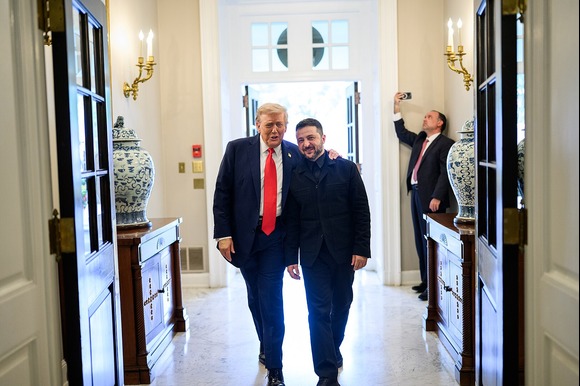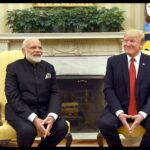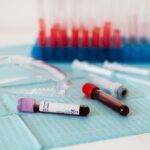Ukrainian President Volodymyr Zelensky appeared to leave Washington empty-handed after his meeting with US President Donald Trump, who signaled that he was not yet ready to approve Kyiv’s request for long-range Tomahawk cruise missiles.
Following their cordial talks at the White House, Zelensky told reporters that the two leaders had discussed the potential supply of Tomahawks but agreed not to make any public announcements, saying the United States wished to avoid “escalation.”
Soon after the meeting, President Trump posted on social media calling for both Kyiv and Moscow to “stop where they are” and bring an end to the ongoing war.
The high-profile meeting came a day after Trump held a phone call with Russian President Vladimir Putin, during which the two agreed to meet in Hungary soon. Zelensky has long argued that striking Russian oil and energy facilities with Tomahawks could significantly weaken Moscow’s war economy.
While Trump did not completely rule out the missile transfer, his comments were notably cautious.
“Hopefully they won’t need it. Hopefully, we can end this war without having to think about Tomahawks,” he said, describing the missiles as “a big deal” essential for America’s own defense. Trump added that sending them to Ukraine could escalate the conflict but said that discussions on the matter would continue.
When asked by the BBC whether the missile issue prompted Putin to request a meeting, Trump replied, “The threat of that is good, but the threat of that is always there.”
Zelensky reportedly floated the idea of offering advanced drones in exchange for the Tomahawks, drawing smiles and nods from the US president.
The Ukrainian leader also praised Trump’s recent diplomatic success in brokering the first stage of a Middle East peace deal, suggesting that momentum could now be extended toward resolving the Russia-Ukraine conflict.
Outside the White House, Zelensky was asked whether he believed Putin’s planned meeting with Trump in Budapest signaled genuine intent or a stalling tactic.
“I don’t know,” he said, noting that the mere possibility of Ukraine obtaining Tomahawks had already made Russia “afraid because it is a strong weapon.”
Pressed on whether he was optimistic about eventually securing the missiles, he responded, “I am realistic.”
Zelensky also seemed open to Trump’s proposal that both sides freeze fighting along current front lines.
“We have to stop where we are—he is right, the president is right,” Zelensky said. “The next step after that is to talk.”
He later posted on X that he had briefed European leaders on his meeting with Trump, emphasizing that the main priorities were “to protect as many lives as possible, ensure Ukraine’s security, and strengthen Europe as a whole.”
UK Prime Minister Keir Starmer described his call with Zelensky as “productive,” vowing that “the UK will continue to provide humanitarian aid and military support.”
Trump’s remarks came as Putin issued a warning that supplying Tomahawks to Ukraine would further strain already tense US-Russia relations.
On Thursday, Trump said his phone conversation with Putin had yielded “great progress,” with both agreeing to meet in Hungary soon, though no date has been set.
Asked whether he was concerned that Putin was buying time through the proposed summit, Trump acknowledged the risk.
“I am,” he said. “But I’ve been played all my life by the best of them, and I came out really well. Maybe he’s playing for time—but that’s fine. I think he wants to make a deal.”
When questioned about whether Zelensky would participate in the prospective Budapest talks, Trump—seated beside the Ukrainian leader—remarked that there was “bad blood” between Putin and Zelensky.
“We want to make it comfortable for everybody,” Trump said. “We’ll be involved in threes, but it may be separate. Still, the three leaders have to get together.”
Trump characterized his recent conversation with Putin, the first since mid-August, as “very productive,” adding that US and Russian delegations would hold follow-up discussions next week.
The US president had previously hoped that a summit in Alaska in August would advance comprehensive peace talks, but that meeting ended without major progress. He later spoke again with Putin, interrupting a session with Zelensky and European officials to make the call.
Meanwhile, in Kyiv, the BBC met a couple rebuilding their small shop destroyed in last month’s Russian missile strike.
Volodymyr, the store owner, began by saying, “We appreciate all support,” before stepping aside in tears. After regaining composure, he continued:
“Truth and democracy will win, and all terrorism and evil will disappear. We just want to live. We don’t want to give up. We just want them to leave us alone.”






